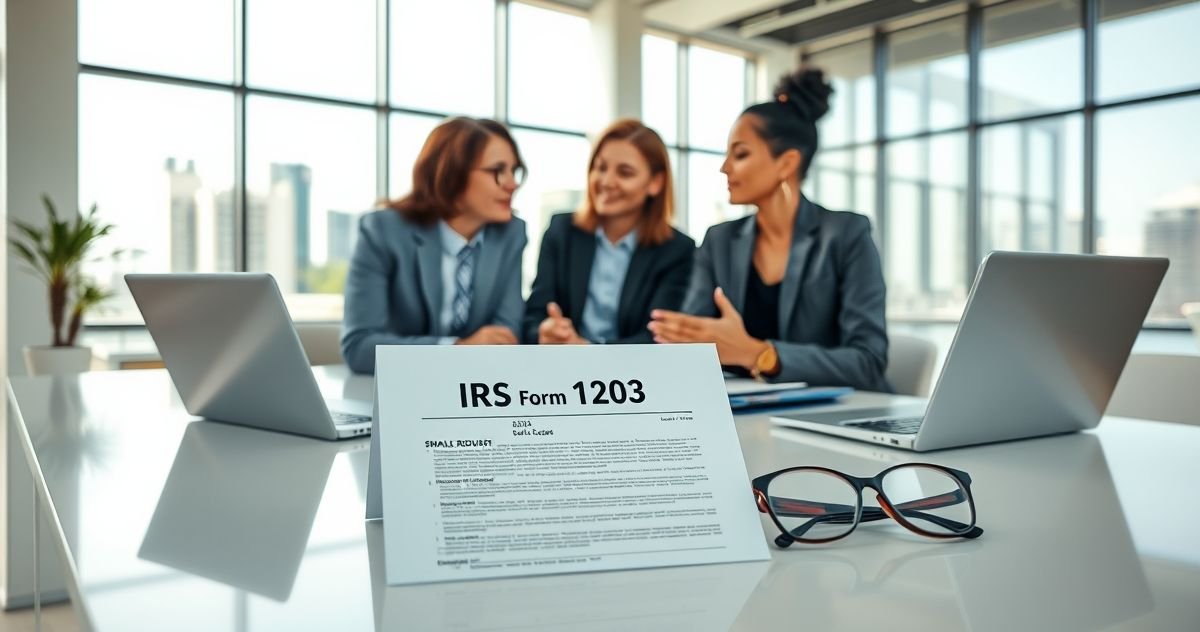The Small Case Request, filed via IRS Form 12203, is a specialized procedure designed to quickly resolve certain tax disputes with the IRS that involve relatively small dollar amounts—typically $25,000 or less for tax years 2019 and later. This option helps individuals and small businesses avoid the complexity, time, and expense of regular appeals or litigation by providing a faster, less formal review process handled by the IRS Office of Appeals.
How the Small Case Request Operates
Taxpayers use Form 12203 to formally present their disagreement with an IRS determination, such as assessments of tax owed or penalties. The request is submitted directly to the IRS Office of Appeals overseeing the case. Unlike standard appeals that may involve extensive documentation, formal hearings, or legal representation, the Small Case Request is managed informally. An Appeals Officer reviews the facts and issues a written decision which, if accepted by both parties, becomes binding.
Key steps include:
- Completing and submitting IRS Form 12203 detailing the dispute.
- Informal review and communication between taxpayer and Appeals Officer.
- Issuance of a binding decision once both sides agree.
If the taxpayer disagrees with this decision, they may opt to withdraw the Small Case Request and pursue further actions through the U.S. Tax Court, but this ends the simplified process.
Eligibility and Limits
The Small Case Request is available for disputes generally involving $25,000 or less in tax, penalties, or interest. It is intended for straightforward issues affecting individuals or small businesses rather than complex tax matters.
Real-World Applications
- An individual disputing a denied deduction of $3,000 can use the Small Case Request to seek a quick ruling without filing a formal appeal.
- A small business contesting a $15,000 penalty related to employment taxes can submit Form 12203 for expedited resolution.
Practical Tips
- Verify that your case fits within the dollar limit and scope before submitting.
- Clearly articulate your disagreement and provide concise supporting facts on the form.
- Understand that accepting the Appeals Officer’s decision finalizes the matter.
- If further appeal is considered, be prepared for a more formal and potentially lengthier process outside the Small Case system.
Clarifying Common Misconceptions
| Misconception | Reality |
|---|---|
| Filing Form 12203 is free | No IRS fee is charged, but professional help may incur costs. |
| It’s an informal, non-binding request | The Small Case Request decision is legally binding once accepted. |
| Suitable for any tax dispute | Limited to disputes under $25,000 and specific issue types. |
Related IRS Appeals Process Information
For a broader understanding of tax dispute resolution, see our articles on IRS Appeal Form and the IRS Appeals Process.
Summary Table: Small Case Request Quick Facts
| Feature | Description |
|---|---|
| Form Used | IRS Form 12203 |
| Purpose | Resolve small tax disputes quickly |
| Dollar Limit | Generally $25,000 or less for recent years |
| Binding? | Yes, if both parties agree |
| Eligibility | Individuals and small businesses |
| Process | Informal, streamlined appeals procedure |
Sources and Additional Reading
- IRS Official Resources on Appeals and Form 12203 (irs.gov)
- Tax Court procedures
- Investopedia: Small Case Request
- Tax Foundation insights
Using the Small Case Request can significantly simplify resolving smaller tax disputes with the IRS, reducing both stress and cost by avoiding lengthy appeals or court actions. Always ensure eligibility and prepare your submission carefully to maximize your chance for a favorable outcome.



